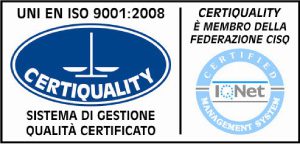GTK Institute
Our History
The Istituto di Gestalt Therapy Hcc Kairos , already Istituto di Gestalt H.C.C. srl, works in the area of the Gestalt Therapy Education and Research both on the national level and international.
The institute was founded in 1979 by Giovanni Salonia and Margherita Spagnuolo Lobb, with the aim to train professionals in the human relations and psychotherapists tram a hermeneutic – faithful to the Italian cultural tradition methodological – and gestalt based on aesthetic values of ethics as reports of care and processes of creative adaptation as a principle of health. The Institute has implemented a scientific exchange and research under the new humanistic values and disseminated the results in various areas of social life.
Recognized by Miur since 1994, the first trainings in Gestalt psychotherapy in Italy
The journal “Quaderni di Gestalt”, founded in 1985, and the series of books published by the publishing house Angeli since 1995 expresses the dialogue consistently implemented by the Italian scientific community and international development of original theoretical and clinical models.
The formative experience with spouses Polster in California and then in New York with Isadore From (one of the founders of Gestalt psychotherapy), and research experience with the most significant figures in the international scene, led to the founding of the first School of Post-Graduate Gestalt psychotherapy in Italy.
The Institute’s activities – characterized from the foundation by the spirit of a community of learning / teaching, rather than an isolated leadership – has established itself first in Sicily and then in the rest of Italy and reached its specificity in 1994 , with the approval of the Ministry of University and Research (MIUR decrees 9/5/94 and 7/12/01).
Among our most innovative contributions: the elaboration of a theory on Basic Relationship Models and Psychopathology, a model of Developmental Theory and therapeutic work with Couples and Families.
In the quarter century of activity, the Institute has contributed significantly to the history and development of Gestalt psychotherapy, it has trained thousands of psychotherapists in the approved premises in Venice, Rome, Palermo, Ragusa and Siracusa.
In 2001 the Institute began a collaboration with the Università Cattolica del Sacro Cuore, far the creation of a Second Level Masters. The scientific contributions of the teachers are now assets of Italian and foreign literature.
In 2008, with the further Ministerial decrees 24/10/2008 MIUR-Minister for the Universities and for Scientific and Technological Research, one has accepted the re-organization of the Institute which, today, as Istituto di Gestalt Therapy Hcc Kairos, works in the three approved places Ragusa, Rome and Venice, under the Scientific Direction of Giovanni Salonia and the Didactic-clinical Direction of Valeria Conte.
Trainings Activities
The Gtk Institute, in collaboration with other organizations and associations, organizes, promotes and sponsors various training activities, usefull not only for the acquisition of specific tools in the field of psychology and psychotherapy, but also for personal and professional growth and for scientific research.
The Publishing
The Institute publishes online the international journal (in Italian and English) of Gestalt Therapy Kairos – GTK Psychotherapy, with the aim of opening a new way of accessing the gestalt universe and contributing, in the national and international panorama, to the debate on suffering and discomfort.
Events
With the aim of continuous training, as a time and opportunity for personal and professional growth, the Gtk Institute organizes conferences, seminars and workshops in its offices, or in collaboration with universities, public and private entities throughout the country.
L’Istituto è in possesso della Certificazione ISO 9001:2008,
L’ente di certificazione dell’Istituto è Certiquality, accreditato da Accredia, unico soggetto giuridico in Italia autorizzato all’accreditamento degli enti di certificazione.
Cosa significa Certificazione di qualità ISO 9001
L’attività svolta dall’Istituto rispecchia i requisiti di ISO 9000, una serie di norme a validità internazionale che fanno riferimento ai sistemi di gestione della qualità.
Quali garanzie fornisce agli utenti?
Consente di avere piena fiducia sul fatto che i servizi offerti dall’Istituto sono volti al miglioramento continuo e costante dell’azienda e di tutti i servizi erogati.
Perché si è scelto un accreditamento di qualità
- migliorare costantemente la qualità, l’efficienza e l’efficacia dei processi produttivi interni e, pertanto, del servizio finale;
- Monitorare e accrescere con maggior efficacia la soddisfazione finale del Cliente/Utente
- Chiarezza nella descrizione dei servizi offerti e rispetto delle specifiche del servizi offerti;
- Impiego di risorse umane qualificate professionalmente e orientate verso la cultura della qualità
Cosa fa praticamente l’Istituto?
Per attuare tale politica l’Istituto elabora un piano annuale dove vengono definiti gli obiettivi della qualità da raggiungere nonché la metodologia e gli strumenti che si intendono utilizzare a tal fine.
Esso raccoglie e conserva tutta la documentazione adeguata e si sottopone costantemente a verifiche esterne da parte degli Enti deputati.
Quali ambiti sono coinvolti?
Le procedure di qualità sono pianificate e predisposte sia per la scuola di specializzazione in psicoterapia della Gestalt sia per tutte le altre attività formative erogate dall’istituto.
Esse coinvolgono:
- Tutte le strutture e le sedi dell’istituto che sono in territorio nazionale
- Tutto il personale amministrativo e didattico
- Tutti gli allievi e gli utenti/corsisti in formazione
Quali strumenti vengono utilizzati?
- Questionari di verifica della soddisfazione dell’utente sul programma formativo, sui docenti, sul personale e sulla segreteria
- Verifica con esami annuali degli apprendimenti raggiunti
- Incontro nazionale annuale tra tutti i docenti e i formatori che a vario titolo collaborano per la erogazione della formazione – un meeting annuale con tre obiettivi :
-
- Approfondimento e aggiornamento teorico clinico e di ricerca
- Verifica delle attività formative erogate nell’anno e aggiornamenti delle attività ad esse correlate
- Pianificazione delle attività formative per l’anno a seguire
-
- Due collegi docenti l’anno in ogni sede per la Scuola di Specializzazione, e relativi verbali per verificare l’andamento delle classi
- Redazione del Manuale di qualità
- Monitoraggio periodico dei locali e dei servizi, manutenzione delle attrezzature, piano di sicurezza
- Programma di formazione sulla legge sulla privacy

